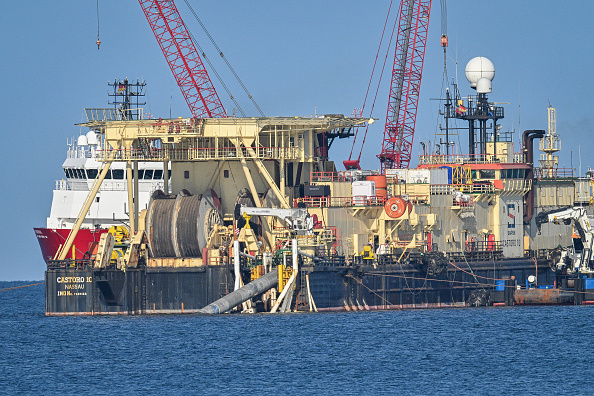According to a recent report in Politico, the current US administration is conducting a review of Liquefied Natural Gas (LNG) export facilities under construction that could negatively impact the US natural gas export industry.
Thereby, it is argued, they could threaten the security of supply for Europe, which became dependent on US LNG due to the reduction of pipeline gas imports from Russia.
The proposed review will assess whether climate change should be considered when determining if a gas-export project should be permitted to move forward.
Due to the “shale-revolution” the US has become the world’s largest producer of LNG – but not everyone seems to be happy with that: Environmental groups are mobilising against this new-found rally in fossil fuels, going so far as to claim that LNG is worse for the environment than the burning of coal.
These groups are supportive of additional reviews, as they believe it aligns with US President Joe Biden’s commitment to transition away from fossil fuels. Democrats are urging Biden to consider the greenhouse-gas emissions associated with natural gas exports, while Republicans emphasise the importance of LNG shipments for national security.
The President’s administration is now facing the tough challenge of keeping its energy export capacity in tact as an important geopolitical tool, while simultaneously trying to placate environmentalist groups that are mobilising against LNG terminals.
In fact, gas-export permits have already been slow rolled under Biden since last year but the implementation of additional bureaucratic hurdles could deter potential customers in allied countries such as Japan and South Korea.
Japan has been particularly hesitant in abandoning joint projects with Russia in the natural gas sector and the world’s second-largest buyer of LNG also continues to buy Russian oil above the US $60-a-barrel price cap that Western nations have agreed upon as part of sanctions packages against Russia.
Washington should be aware of the fact that, whatever its decision, the rest of the world is going to move towards natural gas and LNG anyway.
Qatar, also abundant in cheap natural gas, is moving forward with exploiting the vast resources from the South Pars/North Dome gasfield. This is the largest deposit globally and the Middle East country has no intention of remaining idle when it comes to its development.
Everywhere, the global natural gas market is experiencing significant expansion and diversification, with countries such as Canada, Russia and Saudi Arabia also investing heavily in the development of their gasfields.
The first commercial shipment of natural gas from Canada’s initial terminal in British Columbia is anticipated for 2024 and, combined with the imminent launch of the Arctic LNG-2 project in Russia and Saudi Arabia’s ambitious plans to double gas output by 2030, the world is in the process of an entirely reshaped natural-gas landscape.
This also means new relations regarding dependency will emerge: As the case of Japan has shown, countries need energy and if the US should refuse to expand its export capacities, those countries will get it from somewhere else.
Even European partners will most likely not make their energy needs wholly dependent on US environmentalists. For all the talk of independence from Russia, Belgium and Spain increased their Russian LNG imports by 50 per cent year-on-year in 2023, while France saw in increase in 40 per cent.
Overall, this review by the Biden administration has the potential to significantly impact the US natural-gas export industry, with implications for climate goals, national security and the economy.
Environmental groups are supportive of the reassessment, while foreign policy makes considering the benefits of LNG exports equally important.
The outcome of this review will be crucial in determining the future direction of US energy policy.





More religion than science: To understand today’s climate alarmists read a long-dead Austrian economist, Joseph Schumpeter